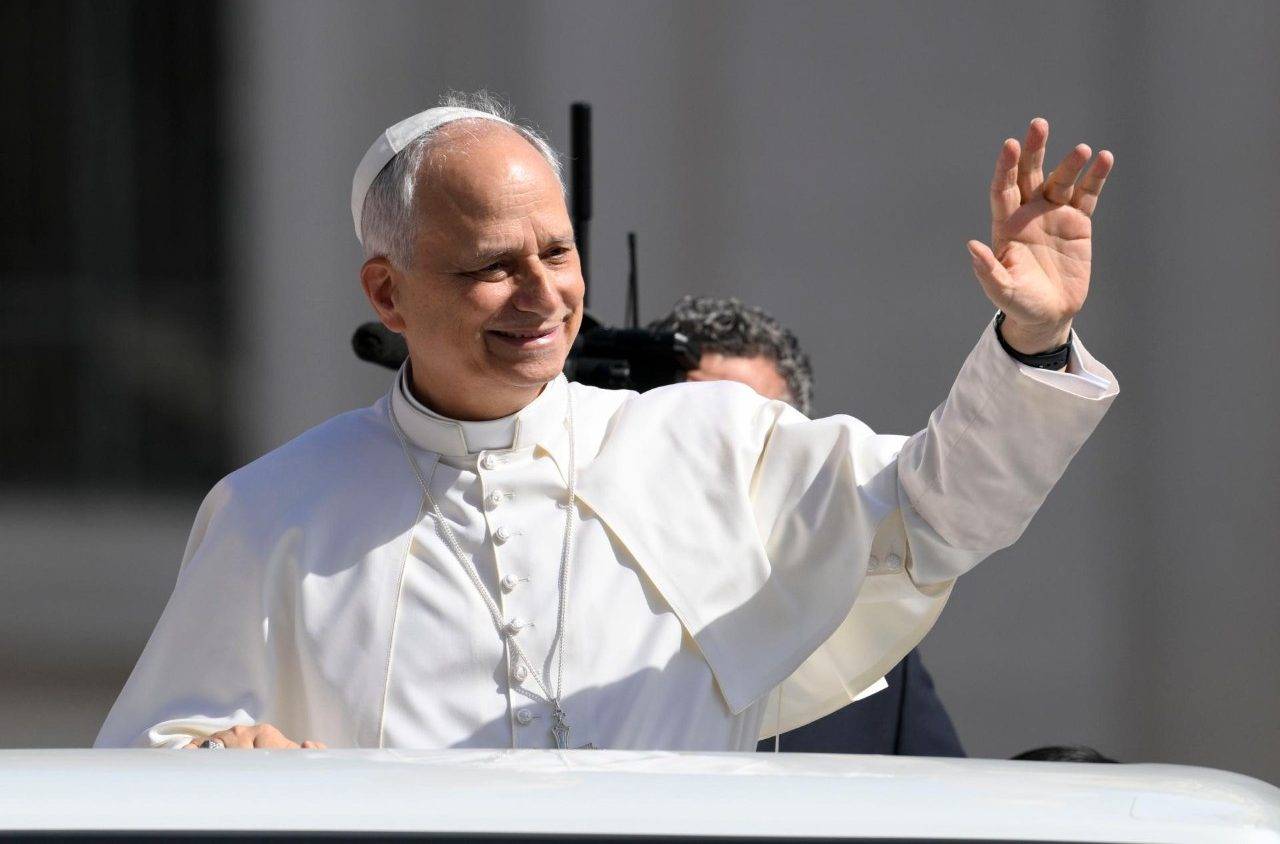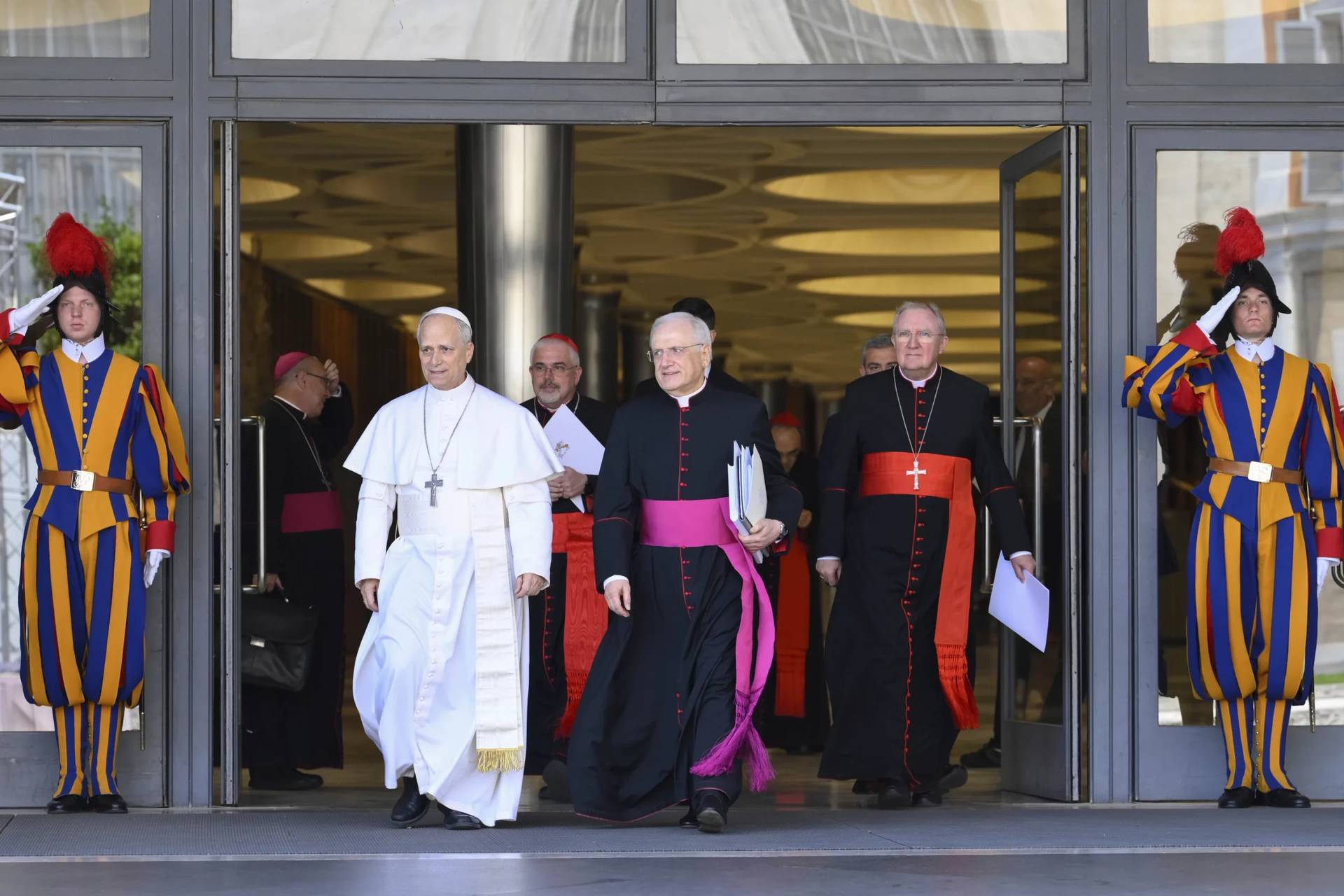LUND, Sweden — The optics were terrific, the warmth and good humor obvious, and the commitment to forging unity between the two Churches never in doubt. But it’s worth asking, after yesterday’s extraordinary joint Catholic-Lutheran Reformation commemoration in the south of Sweden, whether anything has changed.
Of course, the fact that it has taken place at all is news.
Speaking to journalists last night, the general-secretary of the Lutheran World Federation (LWF), Martin Junge, clearly saw it as momentous. The mere fact of the pope coming to commemorate the “Wittenberg Reformation” in the city where the LWF was founded, was a “milestone,” he said.
Sweden’s primate, Antje Jackelen, the Lutheran archbishop of Uppsala and Sweden’s first woman archbishop, said she was “overwhelmed” after a day of great emotions which had shown how “dialogue which may seem quite tedious in the beginning can bear wonderful fruit.”
Swiss Cardinal Kurt Koch, who is in charge of the Vatican’s Christian unity dialogues, also described it as “a new beginning,” proof that relations between Lutherans and Catholics have moved “from conflict to communion.”
Yet one way of framing yesterday was that it was mainly about publicizing and promoting the map of a road already traveled, rather than opening new paths.
There have been no significant developments in the dialogue since the groundbreaking joint declaration between Catholics and Lutherans on justification in 1999, and the current talks on Church, Eucharist and ministry have exposed as many differences between the two Churches as commonalities.
So while it may be true that, as both Pope and Junge insisted yesterday, more unites than divides the two Churches, what divides them is also fairly intractable.
To take the example of ordained ministry: both Churches agree that priesthood is of divine origin, builds the Christian community through the proclamation of the Word and the celebration of the sacraments, and is entered into through an unrepeatable action.
Yet Catholics believe ordination is a sacrament, where Lutherans do not; Catholics see the difference between the general and hierarchical priesthood as one of essence and not only degree, where Lutherans often suggest there is no difference between the office of the ordained ministry and the priesthood of the baptized.
These differences are not just about theological views, but touch on deeper dogmatic and ecclesiological divides.
While both Junge and Koch last night spoke of renewed and continued talks on these and other questions, they gave no impression of believing that there will be significant developments, and in their answers revealed some important tensions, especially in the ethical field.
Many Lutheran Churches not only approve of same-sex marriage in civil law, but marry same-sex couples. And in Sweden, at least, Lutherans regard abortion as a human right.
Jackelin spoke last night of “the sins of greed, of economic injustice” as having a far greater impact on human welfare than what she called “the consequences of sexual behavior.” Yet Koch singled out out “bioethical questions, beginning and end of life questions, and on the other side matrimony and gender” as areas of what he called a “great tension” between the Churches.
It was very important, he said that these ethical questions be discussed as part of the ecumencial dialogue “not just for the sake of the Churches but also of society” for “when the Churches cannot speak about the most important questions about life and in society the Christian voice in society becomes weaker.”
The tensions have also been evident in the tortuous to-and-fro over today’s Mass with the Swedish Catholic community. Francis told the Jesuit journal Signum he had not wanted, at first, to celebrate the Mass in order not to undermine the ecumenical nature of his visit, but later changed his mind after realizing the pastoral importance of not doing so. But this answer gave no impression of the tensions behind the scenes in Sweden.
Sources told Crux that Jackelin exerted strong pressure on Francis not to celebrate the Mass, arguing that it was sectarian and undermining of the ecumenical spirit of his visit. Yet the Catholic Church in Sweden, as well as the government, were keen that he did so —and eventually prevailed.
At the heart of this tension is the Eucharist. Many Lutherans believe that there are no longer theological differences, and see no reason why there should not be intercommunion. But last night Koch made clear that for the Catholic Church, shared Eucharist is “the visible sign of ecclesial communion,” and therefore — he did not need to add — a long way off.
That said, there were two areas in which yesterday’s commemoration have moved the ball — even though the ball was already rolling along those paths.
The first is in allowing the non-Catholic partner in a mixed marriage to receive Communion at Mass.
Junge confirmed to Crux last night that the lines in the joint statement that referred to “those who share their whole lives, but cannot share God’s redeeming presence at the Eucharistic table” referred to mixed marriages.
He said it was important that the statement referred to the situation of what he called “married couples with different denominational affiliation” and that it also “acknowledges the pastoral challenge which this situation creates.”
Koch added that “the question of Eucharistic hospitality in mixed marriages is a pastoral question,” which required what he called “good solutions in this very difficult question.” He said it was “very difficult to give an answer at the universal level” because “this is very much an issue for the local Church.”
Affirming and keeping open this pastoral space was a significant take-away from yesterday’s agreed statement, even if it introduced no new general principle, as Bishop William Kenney, in his Crux interview, speculated it might.
The second take-away is in the area of what might be called “the ecumenism of mercy.”
The phrase comes from one of those traveling with the pope, the Argentine Presybterian ecumenist Marcelo Figueroa, with whom then Cardinal Jorge Mario Bergoglio and Rabbi Abraham Skorka recorded more than 30 programs in Buenos Aires discussing the Bible.
Recently, Pope Francis appointed Figueroa the “content editor” of a local Argentine edition of the Vatican newspaper Osservatore Romano — the first of its kind – which he said will be launched shortly. The edition will have Argentina-specific content, with what he describes as “a strongly interreligious and ecumenical profile.”
Francis, says Figueroa, sees ecumenical dialogue as occurring on two main tracks: the narrow “street” of theological and institutional dialogue, and a much broader “avenue” in which Christians work together to bring God’s mercy to a hurting world.
Francis sees the second as the more “pressing” need, he says, given the rise in migration, people-trafficking, and other symptoms of what the pope calls the “throwaway culture.”
This “ecumenism of mercy” is not, he makes clear, putting aside the call to unity, but a way of responding to it, one that puts Christ at the center.
Just look at the Gospel, he says. “Samaritans and Jews had vast theological differences between their religious worldviews and institutions, yet whenever Jesus gave an example of how to help the poor, he gave Samaritans as an example. They couldn’t meet on theological grounds, but they could meet in the poor.”
Theological dialogue is all very well, says Figueroa, “but if the Churches lose their love of Christ in the flesh, in the poor, all the fine theological documents are emptied of meaning.”
The Churches may strongly disagree, including on ethical questions, but that needn’t prevent them acting together in a state of what Francis calls “reconciled diversity.”
Figueroa believes that yesterday’s agreement between the LWF and Caritas Internationalis to cooperate more closely is not choosing to ignore the Churches’ differences, but to put Christ at the center despite those differences.
Over time, he says, many things that now keep them apart can be resolved, while others will never be. But at least they will be responding jointly to Christ’s call, and putting him at the center.















